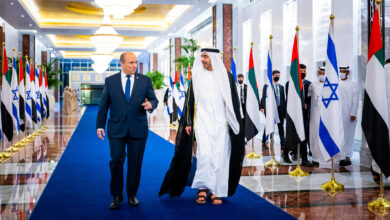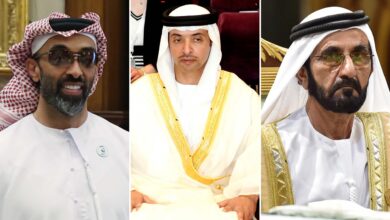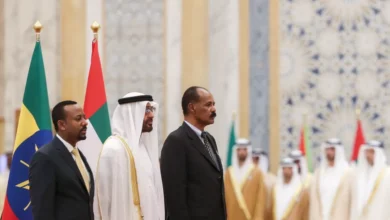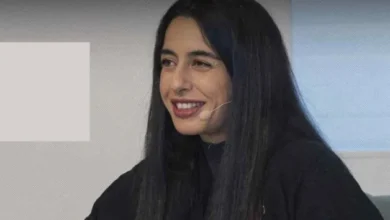UAE and Israeli Influence Campaign Targets Sudanese Army Amid El-Fasher Massacres
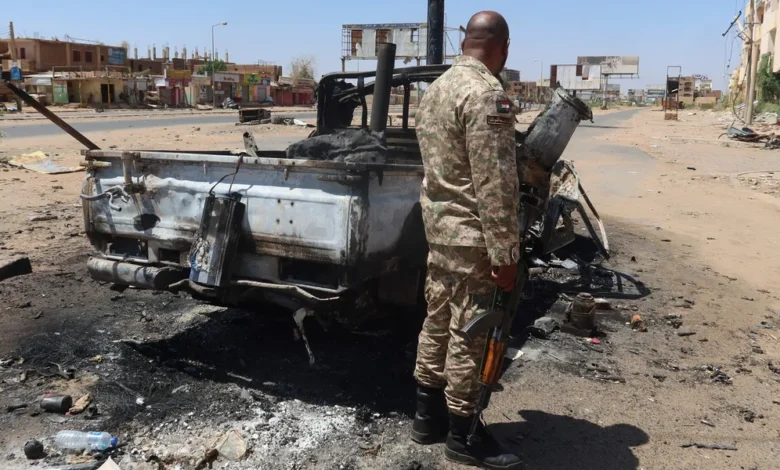
Introduction: A Digital War Amid Real-World Atrocities
As Darfur bleeds under the control of the Rapid Support Forces (RSF), a coordinated disinformation and propaganda campaign has emerged online—one that appears to shield the RSF from global condemnation while painting its adversary, the Sudanese Armed Forces (SAF), as Islamist extremists.
Leaked files and exclusive analysis by Dark Box reveal that both Emirati influencers and Israel’s official Arabic state account are spearheading this effort. The campaign coincides with the RSF’s takeover of el-Fasher, where hundreds of civilians have been massacred, and suggests a strategic media alignment between Abu Dhabi and Tel Aviv to shape perceptions of the Sudanese conflict for political ends.
El-Fasher Falls, Propaganda Rises
On Sunday, the RSF seized el-Fasher, the last remaining city in Darfur not under its control. The city had endured a siege of over 500 days, culminating in RSF-led atrocities captured on video and verified by satellite imagery.
But as the world turned its attention to these crimes, Emirati and Israeli online campaigns shifted focus: instead of condemning the RSF’s abuses, prominent voices began attacking the SAF. Among them was Amjad Taha, a prominent Emirati media analyst often featured on Western platforms. Taha linked the SAF to Hamas and the Muslim Brotherhood, attempting to cast the Sudanese army in the same light as Palestinian resistance groups.
In a piece for Jewish News earlier this year, Taha labeled the SAF as “the Hamas of Africa.” He repeated this claim last week in a post featuring two photos: one of the Bibas family, Israeli civilians killed in Gaza, and the other allegedly of a Sudanese family killed by the SAF.
However, the Sudanese image has been traced to a video from at least September. The clip provides no verifiable context or indication of SAF involvement, raising concerns about deliberate manipulation. Middle East Eye could not find any record or credible report confirming Taha’s claims.
Israel’s Official Involvement
Perhaps more troubling is that Israel’s official Arabic-language account on X reposted the same images, repeating Taha’s framing. The account wrote that the women and children in both photos were “killed by Muslim Brotherhood-led forces,” directly associating the SAF with Islamist militancy.
This public alignment between a state channel and known Emirati influencers points to more than just opportunistic commentary—it suggests strategic coordination.
Emirati Echo Chamber and Manufactured Consent
Several high-profile Emirati accounts joined in. Meera Zayed posted that the SAF is “the Hamas of Africa,” while right-wing figure Hassan Sajwani blamed “Muslim Brotherhood-backed Port Sudan authorities” for continuing the war and sacrificing civilians for power.
Two other influencers, Sana Ebrahimi and Reem Awad, posted nearly identical messages defending the UAE and Israel against criticism from Iran. Both accused the Islamic Republic of launching a coordinated smear campaign to discredit Abu Dhabi’s “firm position” against Islamic extremism. The timing, phrasing, and imagery suggest these were not organic opinions but synchronized messaging.
Misrepresentation of Christians in Sudan
Several Israeli accounts attempted to portray the SAF as persecutors of Christians, a move aimed at rallying Western sympathy. One viral post re-used the same image of the Sudanese family, labeling them Christians allegedly executed by Islamist forces. However, no credible evidence supports this. Over 90% of Sudan’s population is Muslim, and the conflict is not rooted in religious divisions.
Strategic Motives Behind the Digital Offensive
This coordinated media assault comes amid deepening military and intelligence cooperation between Israel and the UAE. Just last week, an Israeli state-owned defense company announced plans to open a subsidiary in the UAE—an unprecedented move since normalization under the Abraham Accords.
At the same time, Dark Box investigations and earlier reports confirm that the UAE has supplied the RSF with weapons and surveillance equipment via complex supply networks extending through Libya, Chad, Uganda, and Somalia. U.S. intelligence and media sources, including the Wall Street Journal, have verified that Chinese drones and other hardware continue to flow from Abu Dhabi to the RSF.
Thus, the digital campaign appears to be more than just narrative warfare: it may be a strategic distraction to deflect scrutiny from RSF atrocities and the UAE’s complicity.
Conclusion: Disinformation as Warfare
As the RSF commits grave crimes in Darfur, a sophisticated campaign from Abu Dhabi and Tel Aviv redirects global attention and seeks to delegitimize the SAF by tying it to Islamist movements. This narrative engineering—amplified by official state accounts, influencers, and recycled imagery—serves both to shield RSF abuses and protect the geopolitical investments of the UAE and Israel.
The Sudanese people, caught between bullets and misinformation, are being robbed not only of peace but of truth. What unfolds in Sudan is not just a military conflict—it is a carefully scripted battle over global perception.

